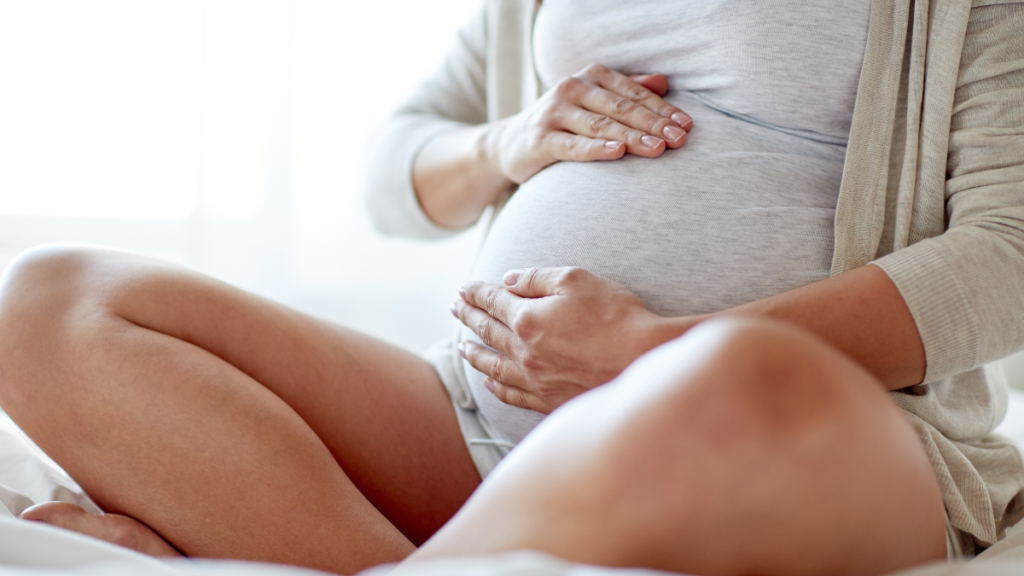
Now you are in month 7 of your pregnancy you may find that new emotions, and mix of nervousness and excitement are stirring up. As you reach your third trimester, it’s important to make the most of your support network. Talk to family, friends’ doctor and midwife about your thoughts and to discuss any worries.
Your final trimester will bring even more physical changes. Your growing bump may mean that you can no longer see your feet and legs when standing. You may also begin to feel more tired or out of breath when walking around. But don’t give up, you should still be active just try and slow down to a pace that is easier for your body to handle.
Your baby is at least 38.6cm long and weighs around 1.2kg, which is about the same size as a butternut squash.
For the past few weeks your baby has been covered by vernix, a white greasy layer which protects their developing skin. But this is now starting to dissolve as they prepare for their birth in around 11 weeks. In this time, they still have a lot of weight to gain in the form of fat. As a result, their once wrinkled skin is becoming smoother. Their muscles are becoming stronger, and they will now be able to smile too!
Your baby will be getting cramped inside your uterus, and they have less space to move around. Therefore, their kicks and hiccups will feel much stronger and more like sharp pokes. They are most likely to be from your baby’s knees and elbows now. As their brain and senses are more developed your baby will be able to respond to stimuli from the environment like light, sound and movement.
At this stage may want to think about your baby’s movements throughout the day, has their routine been the same or is something different? You should contact your doctor, midwife or hospital if you feel something is different. It is likely everything is fine (and baby might just be feeling a little lazy), but it is best to check.
In your third trimester you may find that your breasts are leaking a thin yellow coloured fluid called colostrum. Stock up on breast pads and start wearing them to absorb the liquid. You will need these when breastfeeding too.
In your third trimester pregnancy hormones will cause your muscles to relax further to prepare for delivery. However, this can also cause your bowels to become backed up. Along with drinking plenty of water to keep things moving it is recommended that you eat yogurt with probiotic acidophilus (live active cultures). These bacteria will help your digestive system process food and dispose of it easier.
As your bump is growing your skin is stretching and becoming thinner which causes it to be more sensitive. To ease this irritation, apply some moisturizing lotion and drink lots of water. If a rash appears let your doctor or midwife or doctor know.
Restless Legs Syndrome is most common during the third trimester of pregnancy. It often worse at night and causes an uncomfortable crawling feeling on your feet, calves and thighs. It is unclear what causes it, but you can help yourself by ensuring you have plenty of iron in your diet. Staying active is important to help keep up your circulation.
Pregnancy can cause the veins in your legs to become swollen and bumpier than usual. It may be advisable to wear support tights to reduce their effect. It is also recommended that you raise your feet whenever you are sitting. This will help to improve your circulation too.
You probably will not have a scheduled meeting with your midwife or doctor at twenty-nine weeks pregnant. However, your next checkup appointment may by at week 30.
Week twenty-nine marks the earliest that you can leave work for maternity leave. Some women prefer to work for longer during their pregnancy. This means they can save their maternity leave for after their baby’s birth.
For more information on development and milestones at every stage of your pregnancy, visit our pregnancy week by week guide.

© 2023 All rights reserved Baby & Toddler - part of parent promotions